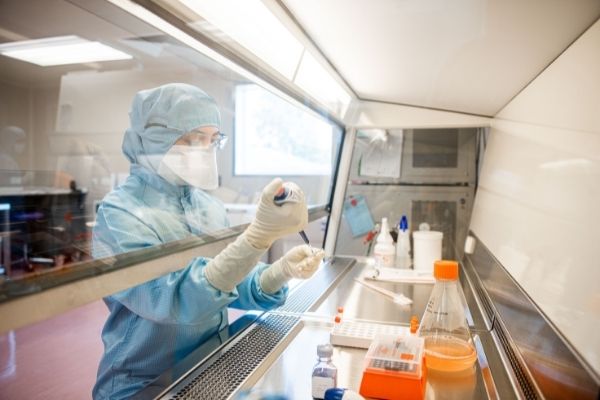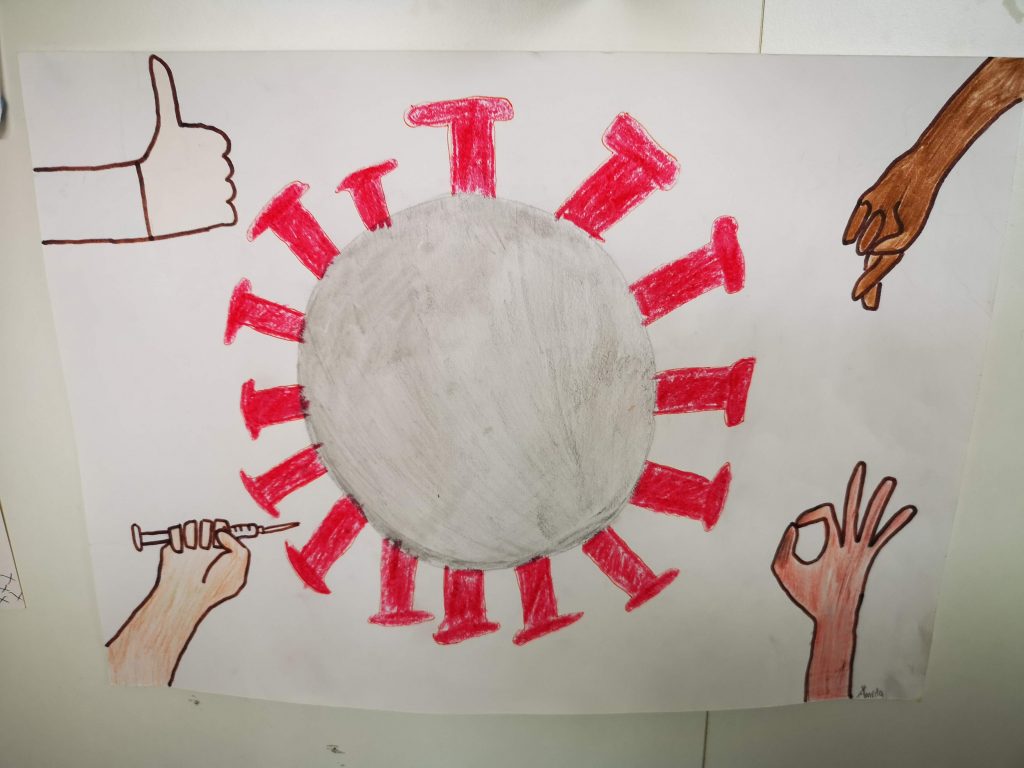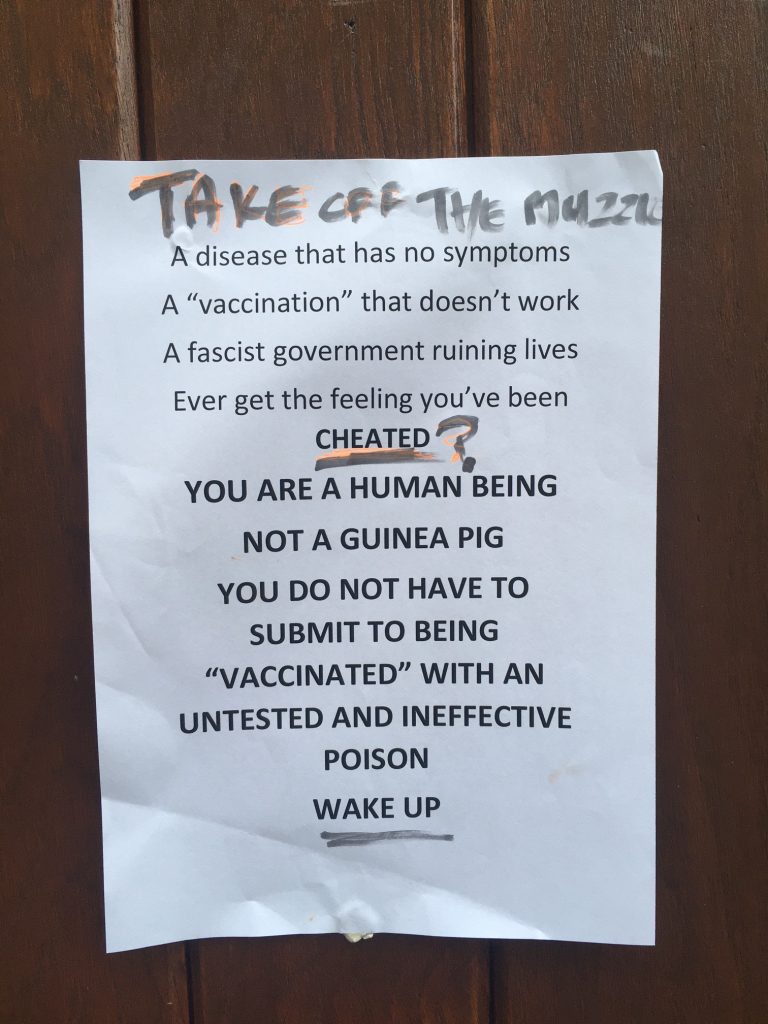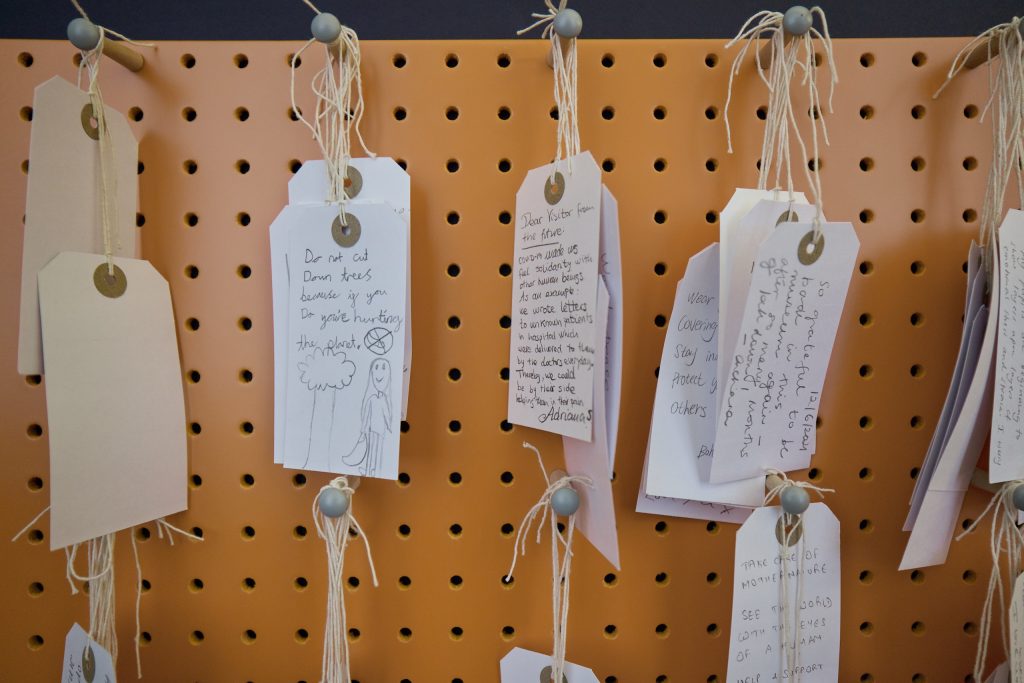The Ethics of Contemporary Collecting
Balancing the Many Voices
of the Pandemic
Tina Eyre — Curator for Collecting COVID at the History of Science Museum — shares her thoughts on the ethics of Contemporary Collecting
As Collecting COVID curator, I have been thinking not just what we should collect, but also how: the ethics of collecting.
Our project is all about gathering Oxford University’s extensive — and highly regarded — response to the pandemic.
That includes vaccine development, drug trials and policy-influencing research.
But unlike traditional museum work, we are collecting material from the present day and speaking directly to the people involved.
We are collecting living history
And as I write this in spring 2022, cases are again on the rise.
Which means the pandemic is still very much with us.
So how do we approach this most contemporary of projects in a responsible way?
What is Contemporary Collecting?
Contemporary Collecting is all about gathering material from the present or recent past for display — and preserving it for future generations.
Until recently, Contemporary Collecting has generally been low on the priority list for museums.
Why waste time and money collecting items that are commonplace and used in everyday life?
Collecting living history
The COVID-19 pandemic triggered a sea change.
We are all living through a unique time, and are aware we should record, understand and remember it.
Collecting COVID is about finding objects — and the personal stories associated with them — by talking directly with first-hand witnesses.
That means Contemporary Collecting has the benefit of rich contextual information.
If we collect, say, an antique piece of furniture, we rely documents and archives to find out who made it and used it.

For Collecting COVID, we talk face-to-face with the scientist who designed the vaccine, or developed the ventilator.
With great access comes great responsibility
But the events we are capturing are also traumatic.
That means our enthusiasm to record this living history must be guided by thoughtful, ethical practices.
And we are learning every day the best way to achieve that.
I am going to discuss this further in future Collecting COVID posts.
For this first article, I’m thinking about how to represent the different — and often conflicting — experiences of the pandemic.
Cheers and jeers
How do we celebrate successes while acknowledging the disappointed — or even angry — voices?
Here at the History of Science Museum, it is part of our mission to celebrate scientific achievement in Oxford.
It is our role to showcase Oxford University’s vital work on COVID-19 — including vaccine development and therapeutics.
We are justifiably proud of our city’s recent contributions to the pandemic.

And we celebrate the teams and individuals involved.
However, this ‘rose-tinted’ — for some, congratulatory — view is challenged by those who had a different experience.
Pandemic counterpoints
Many people felt isolated or marginalised during the pandemic.
Others — often young, active members of the Oxford community — were classified as ‘vulnerable’ and had to stay at home.
And health worries, loss of routine or social isolation risked intensifying their anxiety, potentially triggering further mental health problems.
Many simply feel unfairly treated
Some experienced trauma working on the front line, and found it hard to continue.
Others were working from home, connected only by video calls and text messages.
Are some voices more equal than others?
All this means the experience of living through the pandemic was very varied — and often very difficult.
Even among Oxford academics, opinions vary on which measures are effective and what path we should take.
And it is fair to say that we are not hearing all voices equally
The media portrays images of industrious ‘hero’ scientists triumphantly saving the world with a vaccine.
And for some that can be hard to swallow.
Hearing the quiet voices
They say history is written by the winners.
But it can also be dominated by the loudest voices, simplifying the story by drowning out the quiet ones.
That’s why the Collecting Covid project wants to capture this rich variety of views and stories.
Our collection should illustrate the variety — and complexity — of the pandemic experience.
And you can hear those still, small voices in some of the objects we have collected so far.
Healthcare during a pandemic
One person told us about their experience as a cancer patient during the pandemic. They had to rely on medical consultations online and living away from their family.

A disabled member of staff has donated a box of her essential medication, which wasn’t available during the pandemic: fake news reports that it may protect against COVID-19 led to panic buying.
Vaccines: for and against
We have collected material promoting anti-vaccination view points from around the museum.

And we are collecting material from scientists involved at all levels in developing the Oxford-AstraZeneca vaccine, including hundreds of thank-you letters received from members of the public around the world.

Striking a fair balance
Can we allow dissenting voices a say, without distressing those who gave so much to the fight against COVID-19?
Should we encourage anti-vaxxers to contribute openly to a project which celebrates the vaccine?
How much space should we give to a minority viewpoint?
And how do we encourage people to share stories of failures and difficulties?
If we show scientists as fallible human beings, does that help the public to engage with them and their work?
Or would it promote distrust and uncertainty in science?
The truth is out there
Our goal is to present a rounded, balanced picture.
That means celebrating successes and acknowledging the nay-sayers.
So how do we achieve that?
The truth is — we are still finding out.
But we will not stop searching for the answer.
And we hope you will contribute your views, too.
As we catalogue the items collected, you can begin to see them in our Collections Online database.
You can visit our Museum in person to share your experiences.

Or post your views online about what we should tell future museum visitors about the pandemic.
Read more articles in the Collecting COVID series
Find out about Collecting COVID at the Bodleian Libraries
An Introduction to Collecting COVID at the Bodleian Libraries